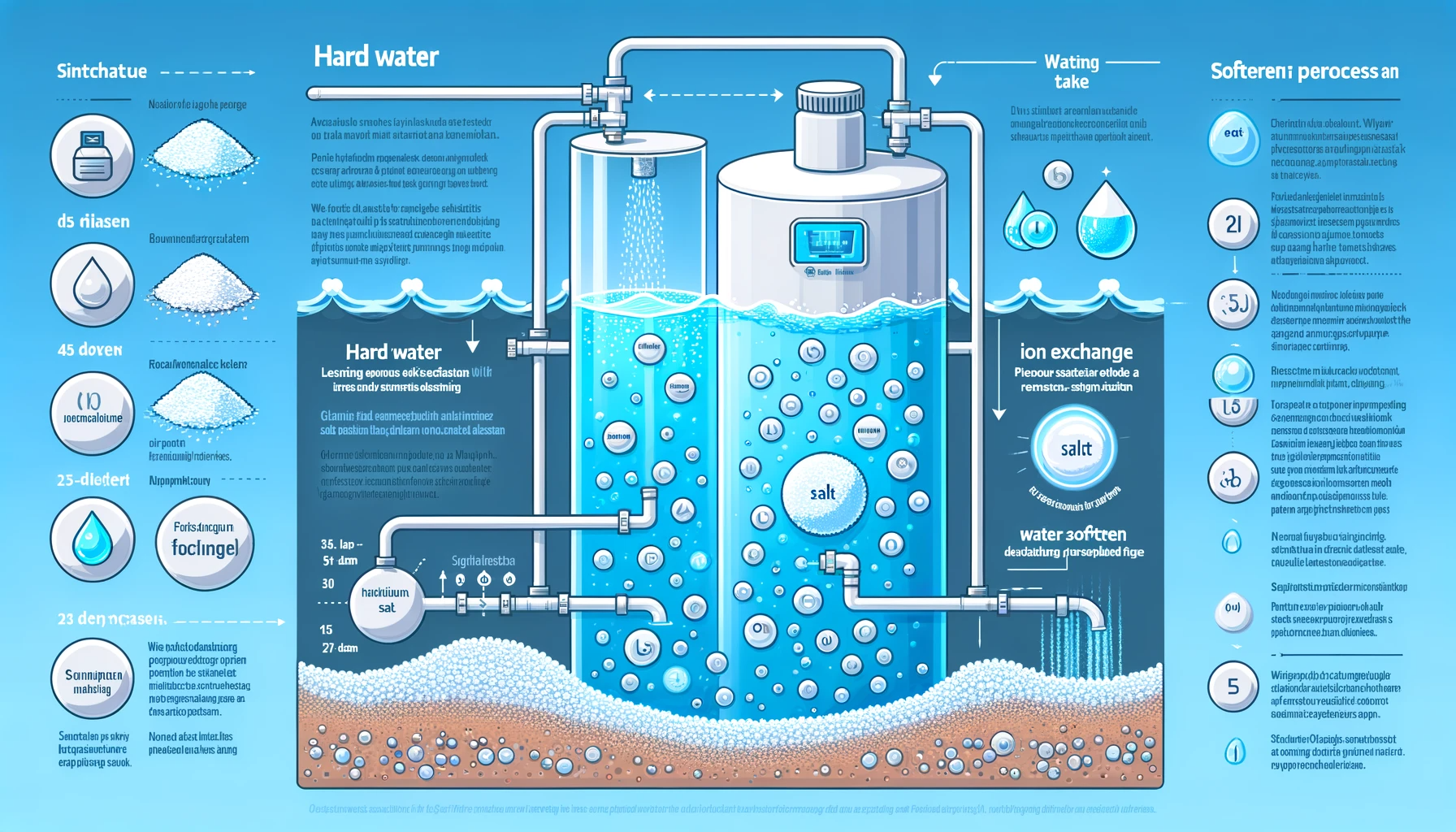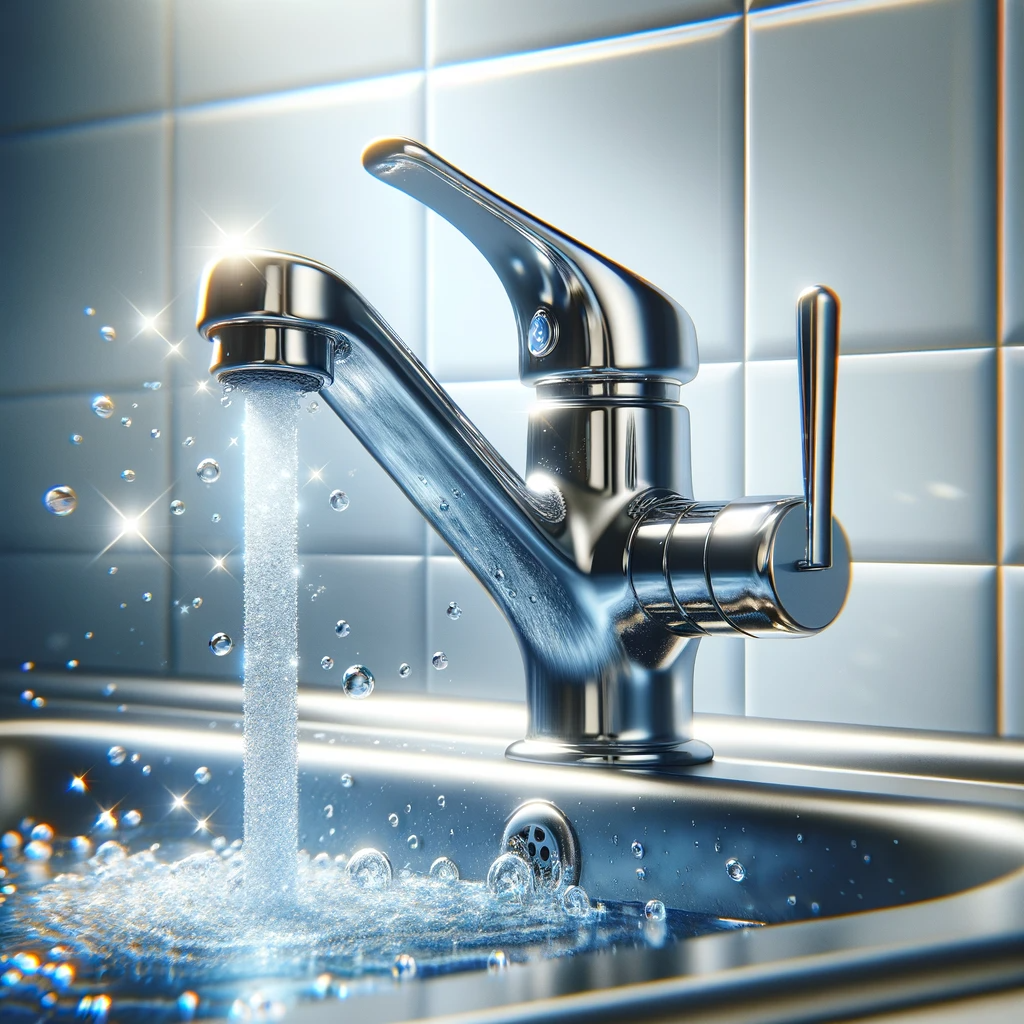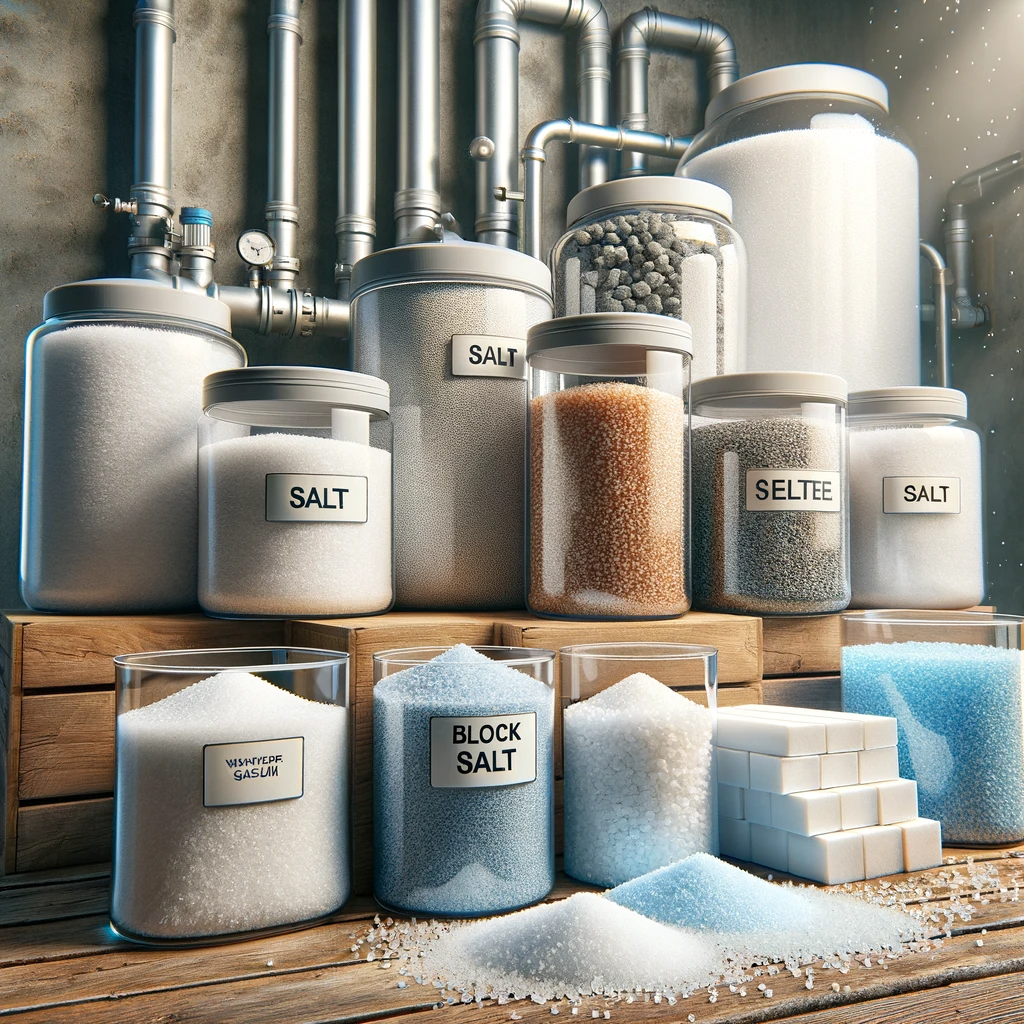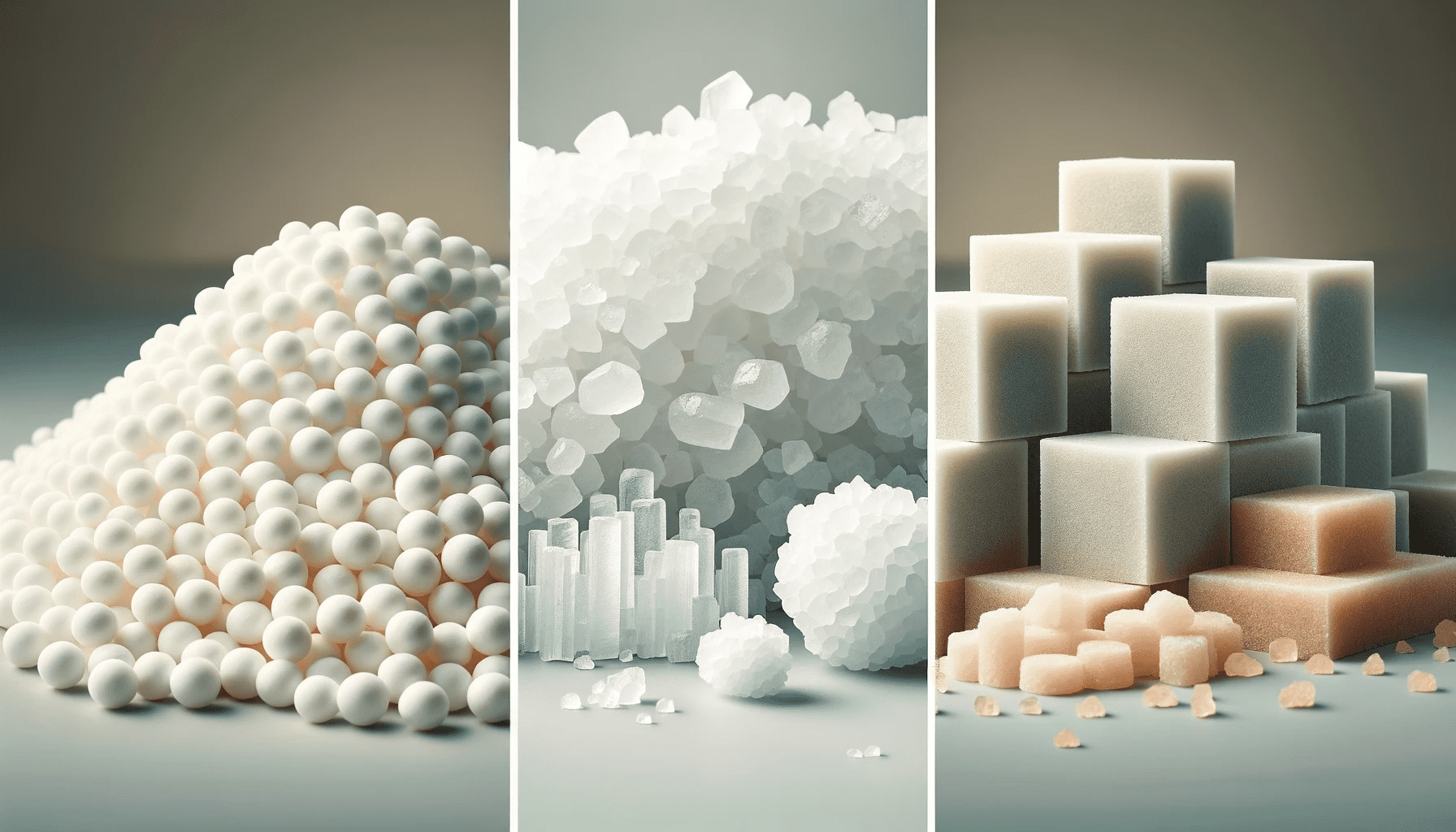For a water softener, it is best to use salt pellets made of pure sodium chloride. These pellets dissolve easily, do not leave any residue, and prevent bridging.
They are the most effective option for maintaining your water softener’s performance.
Understanding Water Softener Salt
Water softener salt, specifically designed for water softeners and not table salt or deicing salt, is necessary for regeneration cycles. The best option is salt pellets, as they dissolve easily, do not leave residue, and prevent bridging. Solar salt is also commonly used for its high purity and minimal residue.
The Difference Between Water Softener Salt And Regular Table Salt Or Deicing Salt.
A water softener salt is different from regular table salt or deicing salt, which is important to know when it comes to water softeners. While regular table salt and deicing salt are commonly used in the kitchen or for road maintenance, water softener salt serves a specific purpose in the water softening process. Unlike regular table salt or deicing salt, water softener salt is designed to remove minerals that cause water hardness. It undergoes a different manufacturing process and is specifically formulated to work effectively in water softeners.
The Importance Of Purity Levels In Water Softener Salt.
An effective and long-lasting water softener depends on its purity level. Water softener salt with high purity levels ensures that only clean salt is introduced into the softener system. This helps prevent the build-up of impurities that can clog the resin bed or cause damage to the water softener. It’s essential to choose water softener salt with high purity levels to ensure the best results and avoid any potential issues with the softening process. Always look for salt products that have been independently tested and certified for purity.
The Softening Process And How Salt Plays A Role.
The softening process involves the exchange of hardness minerals, such as calcium and magnesium, with sodium ions. This exchange occurs in a resin bed inside the water softener. Salt plays a vital role in this process by regenerating the resin bed. During the regeneration cycle, a brine solution is created by dissolving water softener salt. This brine solution is then used to flush out the accumulated hardness minerals from the resin bed, allowing it to be ready for the next softening cycle.
Without the use of salt, the resin bed would quickly become saturated and lose its ability to effectively remove hardness minerals from the water. It’s crucial to use the right kind of salt and maintain proper salt levels for the water softener to function optimally. In conclusion, understanding water softener salt is crucial for the proper functioning of your water softener system. Remember to choose water softener salt specifically designed for this purpose and with high purity levels. By ensuring the correct salt is used and maintaining proper salt levels, you can enjoy the benefits of soft water in your home.
Types Of Salt For Water Softeners
When it comes to water softeners, it is important to use the right kind of salt for optimal performance. Salt pellets are often recommended as they dissolve easily, do not leave residue, and prevent bridging. Sodium chloride, specifically designed for water softeners, is the best option to keep your system running smoothly.
Sodium Chloride (NaCl)
Sodium Chloride, or table salt, is the most common and affordable option for water softeners. It is highly effective in softening hard water, making it ideal for those dealing with limescale buildup and other issues caused by hard water. The sodium chloride product is not recommended for those on sodium restrictions or trying to reduce sodium intake.
Potassium Chloride (KCl)
Potassium Chloride is a sodium-free alternative that health-conscious individuals often choose. While slightly less effective than sodium chloride, potassium chloride is still efficient in softening hard water. It can be a great option for those with sodium restrictions or concerns about water quality. However, it’s worth mentioning that using potassium chloride may require adjusting the settings on your water softener.
Other Salt Options
Apart from sodium chloride and potassium chloride, there are other salt options available for water softeners. Here is a breakdown of some of these options:
| Solar salt- | Typically obtained by evaporating seawater or saltwater from salt mines | Usually less expensive and easy to find |
| Evaporated salt- | Produced from brine and undergoes an evaporation process | The purest form of salt for water softeners |
| Block salt- | Compressed salt blocks that dissolve slowly in water softeners | A convenient option for those with limited storage space |
| Pellets- | Salt crystals that have been refined into pure sodium chloride | Do not bridge, dissolve easily, and leave no residue |
| Rock salt– | Natural salt that is mined from underground deposits | Least expensive option, but may contain impurities |
As with any product, each salt solution has its advantages and disadvantages. Personal preference, cost, and availability are important factors to take into consideration when making your choice. It’s essential to consider factors like the purity of the salt and any specific requirements you may have. When selecting the type of salt for your water softener, it’s recommended to review Water Softener Reviews, and online resources, and consult with a professional to determine the best option for your specific needs.

Factors To Consider When Choosing Salt:
Choosing the right kind of salt for your water softener is crucial. Pellets are often the best option as they dissolve easily, don’t leave residue, and are less likely to bridge. Avoid using table salt or deicing salt, as these are not designed for water softeners.
When it comes to choosing salt for your water softener, several factors need to be taken into consideration. These factors include the hardness of your water, your budget, any health concerns related to sodium intake, and the compatibility of the salt with your water softener model. By understanding these factors, you can ensure that you select the right kind of salt that will effectively soften your water and meet your specific needs.
Water Hardness: Harder Water Requires More Efficient Salt Types Like Evaporated Pellets.
Hardness is determined by the concentration of minerals, such as calcium and magnesium, in your water. The harder your water, the more efficient the salt type needed to effectively soften it. Evaporated pellets are considered one of the most efficient salt types for softening harder water. They dissolve easily and prevent mineral buildup in your water softener system, ensuring optimal performance.
Budget: Nacl Is The Cheapest Option, While Kcl And Specific Pellet Types Can Be More Expensive.
Your budget plays an important role in determining the type of salt you choose for your water softener. Sodium chloride (NaCl) is the most commonly used and the cheapest option available. However, if budget is not a constraint, potassium chloride (KCl) or specific pellet types can be considered. KCl is a great alternative for individuals who are concerned about their sodium intake.
Health Concerns: Opt For Kcl If Sodium Intake Is A Concern.
If you have health concerns related to sodium intake, it is recommended to opt for potassium chloride (KCl) as a salt type for your water softener. KCl offers the same water softening benefits as sodium chloride but with lower sodium content. This makes it a healthier option for individuals with certain medical conditions, such as high blood pressure or heart disease.
Water Softener Model: Some Models Have Limitations On Compatible Salt Types.
Before choosing a specific type of salt, it is important to consider the compatibility of the salt with your water softener model. Some water softener models may have limitations on the types of salt they can effectively utilize. It is important to refer to the manufacturer’s instructions or consult with a professional to ensure that you choose a salt type that is compatible with your specific water softener model.

Tips For Using Water Softener Salt:
To ensure optimal performance, it’s important to use the right kind of salt for your water softener. Avoid using table salt or deicing salt, and instead opt for salt specifically designed for water softeners, such as sodium chloride. This type of salt dissolves easily, doesn’t leave any residue, and keeps your water softener running smoothly.
Purchase High-purity Salt To Avoid Clogging Or Malfunction.
When it comes to water softener maintenance tips, one of the most important things to consider is the type of salt you use. High-purity salt is recommended as it helps to prevent clogging or malfunction of your water softener system. The presence of impurities in lower-quality salts can lead to the accumulation of residue and blockages in the brine tank, which can reduce the efficiency of your water softener. By investing in high-purity salt, you can ensure that your water softener operates optimally and continues to provide you with soft and clean water.
Store Salt In A Dry Place To Prevent Clumping.
Proper storage of salt is crucial to maintain its quality and effectiveness. To prevent clumping, it is important to store the salt in a dry place. Moisture can cause the salt crystals to stick together, forming clumps that can clog the brine tank and hinder the regeneration process of your water softener. By keeping your salt in a dry storage area, you can ensure that it remains free-flowing and ready for use whenever you need to refill the brine tank.

Avoid Overfilling The Brine Tank To Prevent Salt Bridging.
Salt bridging is a common issue that occurs when a hard crust forms on top of the salt in the brine tank, preventing it from dissolving properly. To avoid this problem, it is important to avoid overfilling the brine tank. Overfilling can lead to compacted salt, which increases the likelihood of salt bridging. By maintaining the right salt level in the brine tank, you can prevent salt bridging and ensure that your water softener functions effectively.
Regularly Monitor Salt Levels And Refill As Needed.
Regularly monitoring the salt levels in your brine tank is essential for proper water softener maintenance. You should check the salt level at least once a month and refill as needed. A low salt level can prevent your water softener from regenerating properly, leading to hard water issues. By keeping a close eye on the salt levels and replenishing them when necessary, you can ensure that your water softener continues to provide you with the softened water you desire.
In summary, when it comes to using water softener salt, it is important to purchase high-purity salt to avoid clogging or malfunction. Storing the salt in a dry place will prevent clumping while avoiding overfilling the brine tank can prevent salt bridging. Regularly monitoring the salt levels and refilling as needed will keep your water softener operating efficiently. By following these tips for using water softener salt, you can maintain the effectiveness of your water softener system and enjoy the benefits of soft and clean water in your home.
Frequently Asked Questions On What Kind Of Salt For Water Softener
Is It Better To Use Salt Crystals Or Pellets?
Salt pellets are better to use than salt crystals for water softeners. Pellets dissolve easily, don’t leave any residue, and don’t bridge. They are the best option for keeping your water softener running smoothly.
How Do I Know What Softener Salt To Use?
For your water softener, it is best to use salt pellets. They dissolve easily, don’t leave any residue, and prevent bridging. Avoid using table salt or deicing salt as they are not suitable for water softeners. Stick to salt specifically designed for water softeners, like sodium chloride.
Which Is Better Diamond Crystal Or Morton Salt Pellets?
Diamond Crystal and Morton salt pellets are both good options for water softeners. Pellets are made from refined salt crystals, dissolve easily, do not leave residue, and do not bridge. They are the best choice for keeping your water softener functioning properly.
What Salt Is Best For Hard Water?
The best salt for hard water is solar salt, as it is naturally white, high in purity, and leaves minimal residue behind. It is the most commonly used salt for water softening. Avoid using table salt or deicing salt, as they are not suitable for water softeners.
What Kind Of Salt Is Best For A Water Softener?
When it comes to choosing salt for your water softener, the best option is salt pellets. They dissolve easily, don’t leave residue, and keep your softener running smoothly.
Conclusion
To effectively maintain your water softener, it’s crucial to choose the right salt. While there are various options available, salt pellets are often the best choice. These pellets dissolve easily, prevent bridging, and leave no residue, keeping your water softener working in optimal condition.
Remember, it’s essential to use salt specifically designed for water softeners, such as sodium chloride or potassium chloride. By selecting the right kind of salt, you can ensure the efficiency and longevity of your water softener system.


Leave a Reply